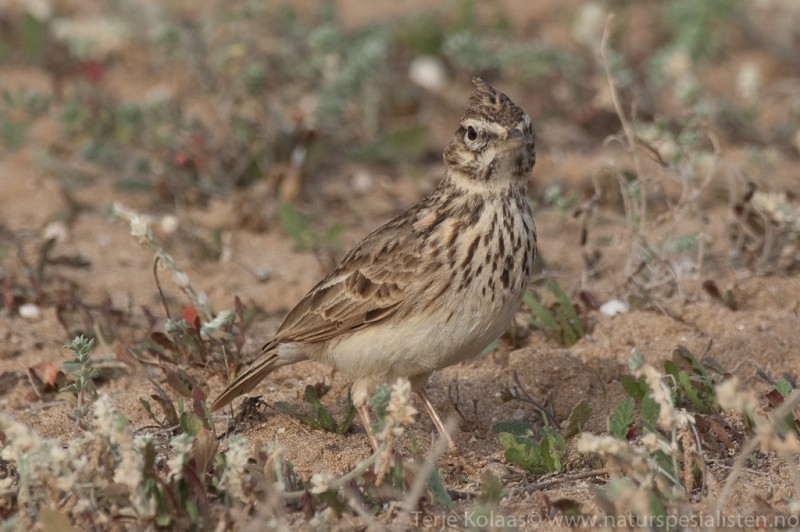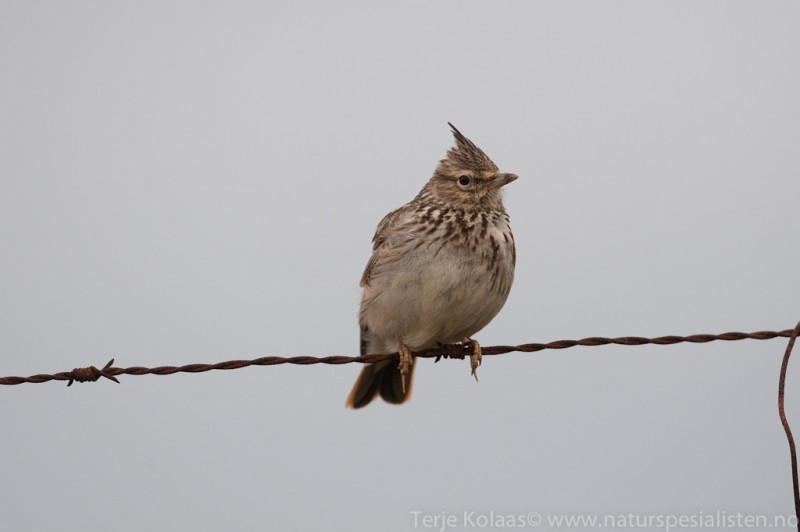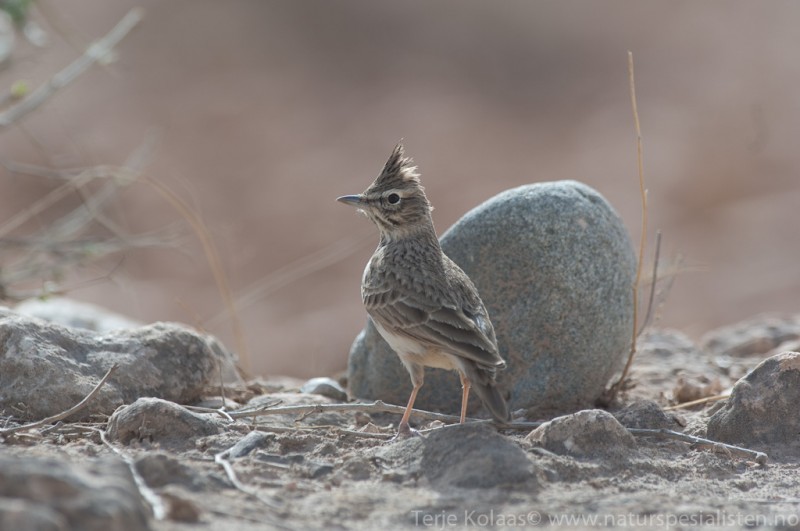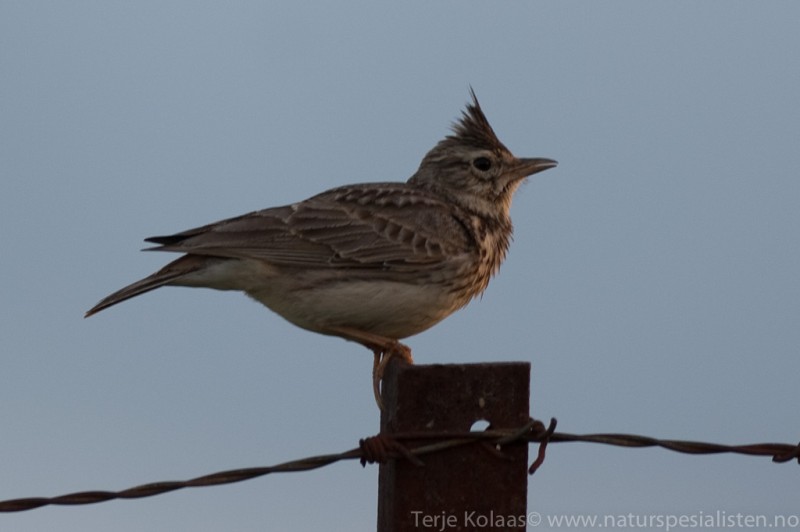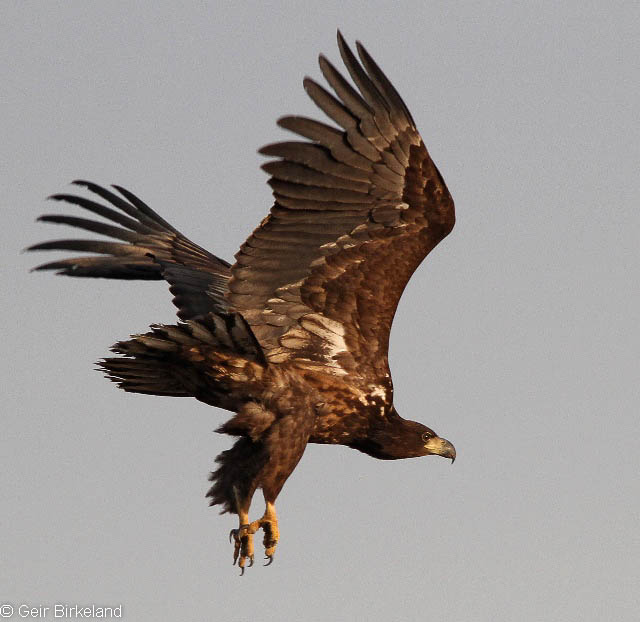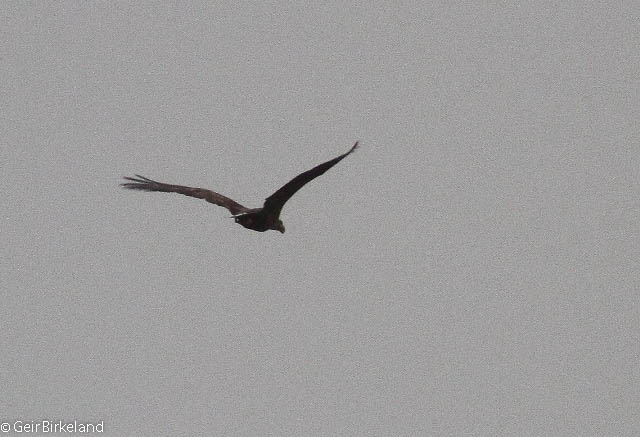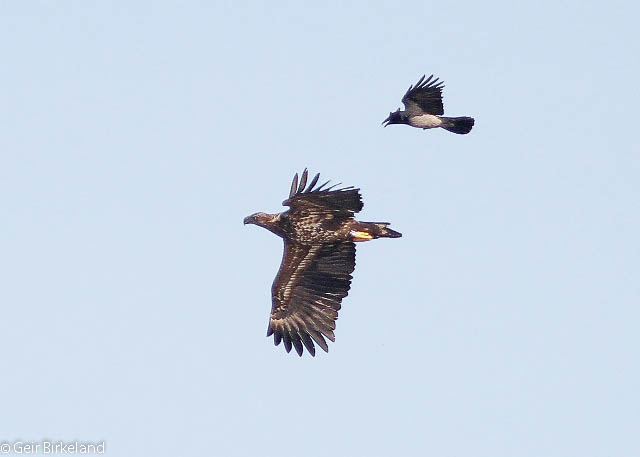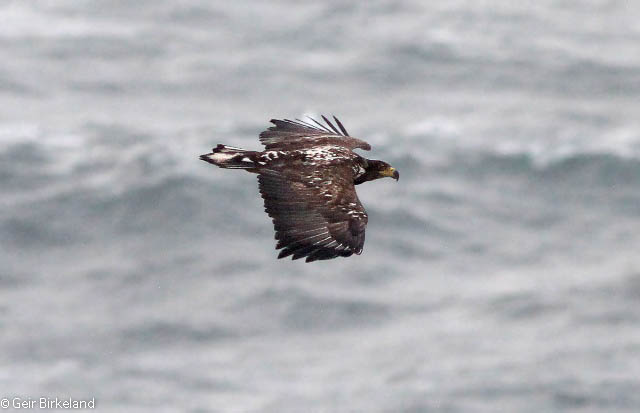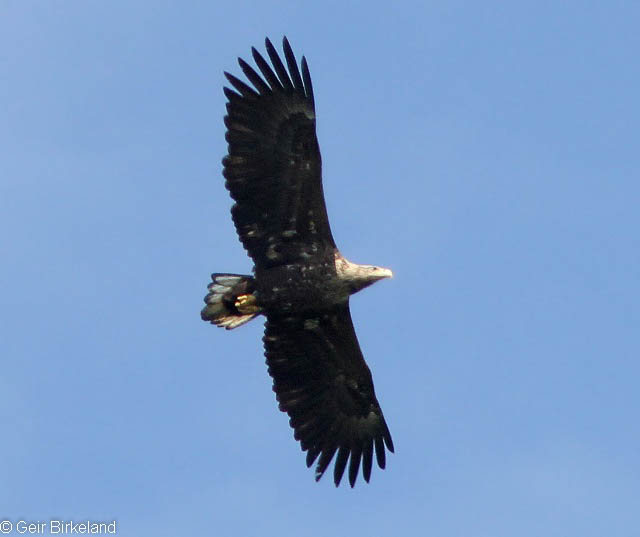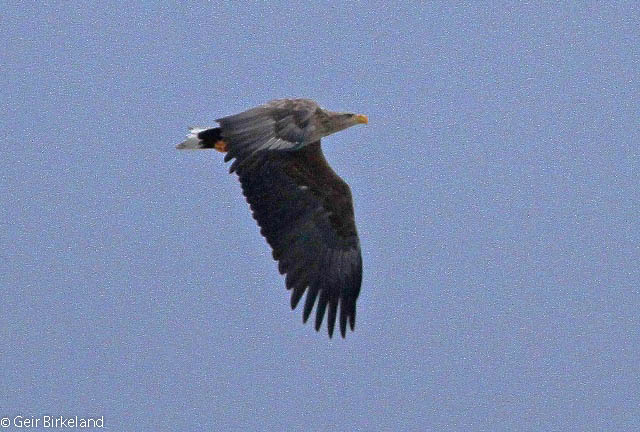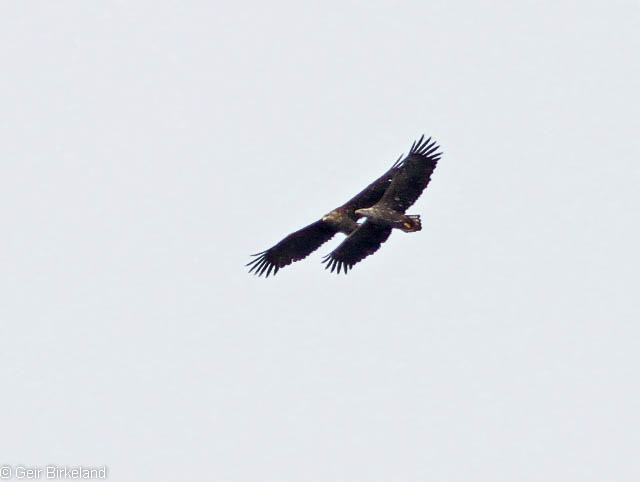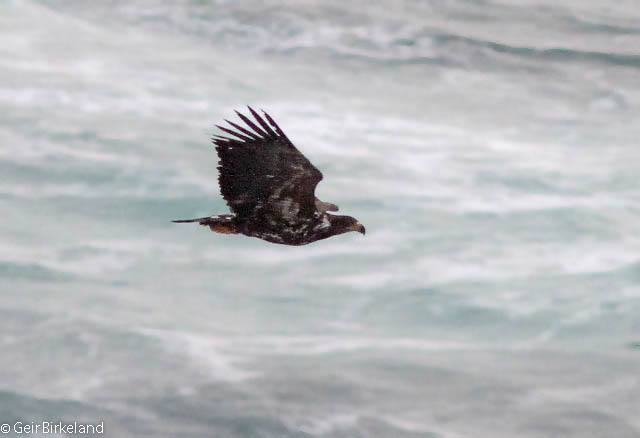Thekla's Lark (Galerida theklae)
White-tailed Eagle (Haliaeetus albicilla)
Very similar to Crested Lark, and identification can be very difficult in areas where both species occur. The much used streaked-breast character is not always relevant because of regional variations among the many subspecies of both Crested and Thekla. Then habitat, behaviour and voice becomes important for identification. A combination of the following characters should be used to tell it from Crested: Bill appears straight (because of convex lower mandible), crest fuller and not so pointed, belly less deep, back more heavily streaked , tail coverts rusty-brown in contrast to rump, underwing coverts greyish white (not rufous), upper breast with defined streaking ("done with marker pen"). Eye-stripe white behind eye. Will often perch atop of scrubs or bushes, unlike Crested, and usually prefers higher altitude habitats.
Sound:Song: a mix of long whistling, warbling sounds, trills and mimicry. Full song very similar to Crested Lark. Rudiments of song are often heard and is less whistling than Crested. The contact call/alarm-call may be the best characteristic to separate it from Crested Lark where both species occur. Thekla Lark calls with 3-5 syllables, of which one is often drawn out and "hangs" while falling in pitch, giving it a melancholic feeling (diagnostic). The phrase has a more "bouncing" feel to it than Crested Lark.
Call and song (diagnostic call at time 08-11 sec.):
Distribution:
Xeno-canto: map
Ecology:Birdlife ecology
Links:
Observation.org Latest observations
Image search Flickr NB! May give other species
CCDiagnostic flight profile with rectangular, uniformly broad and deeply fingered wings. Long neck and short, wedge-shaped tail. Bill very heavy and tarsus unfeathered. Adults with pale, yellowish head and white tail. Juveniles uniformly brown with dark tail. Females bigger than males. Flight pattern: Long sequences of shallow wing-beats, and only limited glides (as opposed to Golden Eagle).
Sound:A sharp high-pitched clear "klyytt klyytt klyytt klyytt" is often heard. Uttered with some variation in pitch and timbre. Sometimes more raucous and not so high pitched.
Contact call:
Distribution:
Wikipedia: map (se also Xeno-canto below)
Ecology:Birdlife ecology
Links:
Observation.org Latest observations
Image search Flickr NB! May give other species
CCSounds:Recorded by Martin Miethke,http://www.xeno-canto.org ,CC license

 English
English Albanian
Albanian
 Armenian
Armenian
 Bulgarian
Bulgarian
 Catalan
Catalan
 Croatian
Croatian
 Czech
Czech
 Danish
Danish
 Dutch
Dutch
 Finnish
Finnish
 French
French
 Georgian
Georgian
 German
German
 Greek
Greek
 Hungarian
Hungarian
 Italian
Italian
 Latvian
Latvian
 Lithuanian
Lithuanian
 Macedonian
Macedonian
 Norwegian
Norwegian
 Polish
Polish
 Portuguese
Portuguese
 Romanian
Romanian
 Russian
Russian
 Sami : Lule sami
Sami : Lule sami
 Sami : North sami
Sami : North sami
 Sami : South sami
Sami : South sami
 Scientific names
Scientific names
 Serbian
Serbian
 Spanish
Spanish
 Swedish
Swedish
 Ukrainian
Ukrainian


